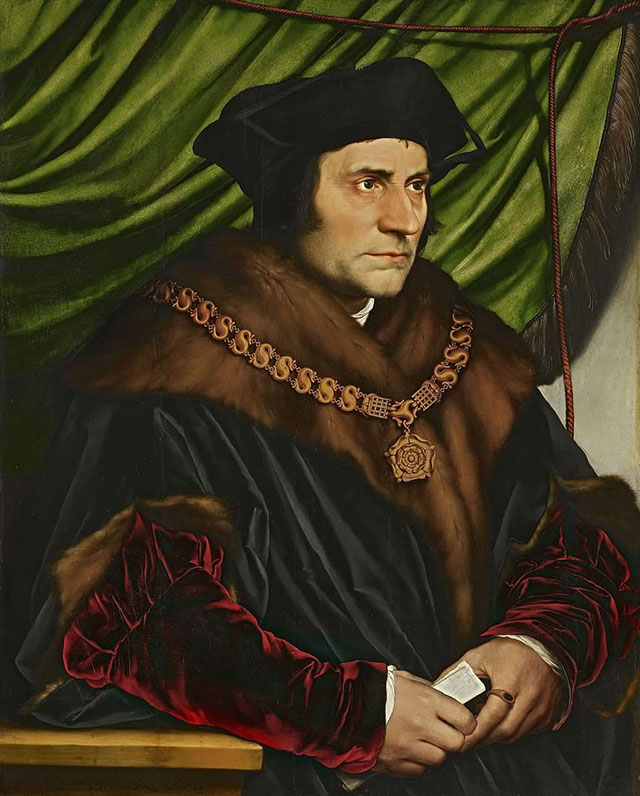
“In the very deepest sense he is thus the champion of Liberty in his public life and his still more public death. In his private life he is the type of a truth even less understood to-day; the truth that the real habitation of Liberty is the home. Modern novels and newspapers and problem plays have been piled up in one huge rubbish-heap to hide this simple fact; yet it is a fact that can be proved quite simply. Public life must be rather more regimented than private life; just as a man cannot wander about in the traffic of Piccadilly exactly as he could wander about in his own garden. Where there is traffic there will be regulation of traffic; and this is quite as true, or even more true, where it is what we should call an illicit traffic; where the most modern governments organize sterilization to-day and may organize infanticide to-morrow. Those who hold the modem superstition that the State can do no wrong will be bound to accept such a thing as right. If individuals have any hope of protecting their freedom, they must protect their family life. At the worst there will be rather more personal adaptation in a household than in a concentration camp; at the best there will be rather less routine in a family than in a factory. In any tolerably healthy home the rules are at least partly affected by things that cannot possibly affect fixed laws; for instance, the thing we call a sense of humour.
Therefore More is vividly important as the Humorist; as representing that special phase of the Humanist. Behind his public life, which was so grand a tragedy, there was a private life that was a perpetual comedy. He was, as Mr. Christopher Hollis says in his excellent study, “an incorrigible leg-puller.” Everybody knows, of course, that the comedy and the tragedy met as they meet in Shakespeare, on that last high wooden stage where his drama ended. In that terrible moment he realized and relished the grand joke of the human body, as of a sort of lovable lumber; gravely discussed whether his beard had committed treason; and said in hoisting himself up the ladder, “See me safely up; coming down I can take care of myself.”
But Thomas More never came down that ladder. He had done with all descents and downward goings, and what had been himself vanished from men’s eyes almost in the manner of his Master, who being lifted up shall draw all men after Him. And the dark closed over him and the clouds came between; until long afterwards the wisdom that can a read such secrets saw him fixed far above our heads like a returning star; and established his station in the skies. ”
-G. K. Chesterton, Sir Thomas More, The Well and The Shallows, 1903
Read more: The Well and the Shallows
Lecture: The Well and the Shallows
Dialogue of Comfort Against Tribulation: Written by More while in the Tower awaiting execution by Henry VIII for treason.
Image sources: Hans Holbein the Younger [Public domain], via Wikimedia Commons

